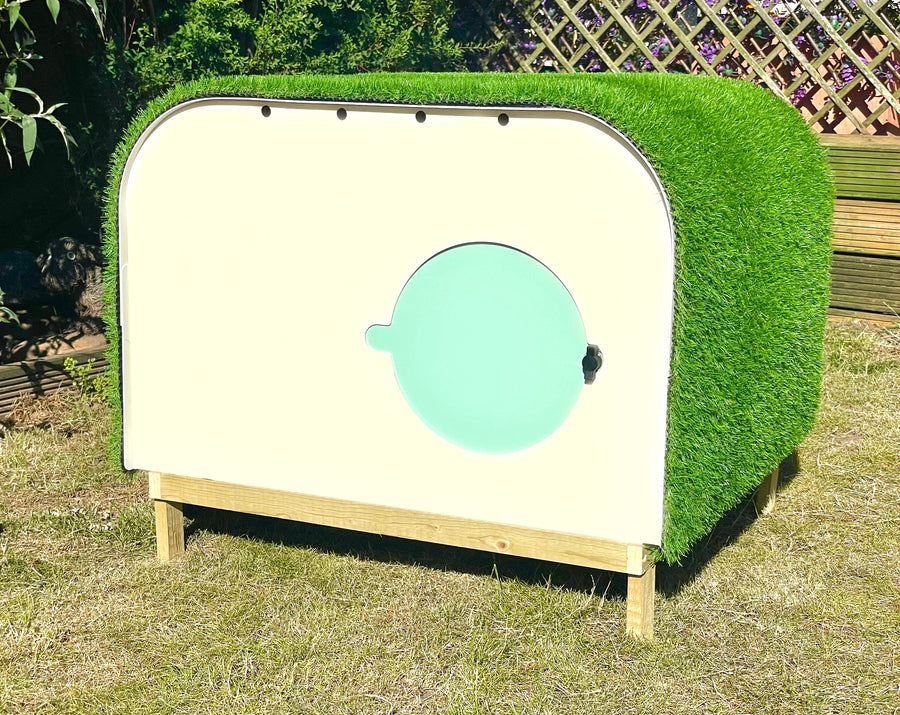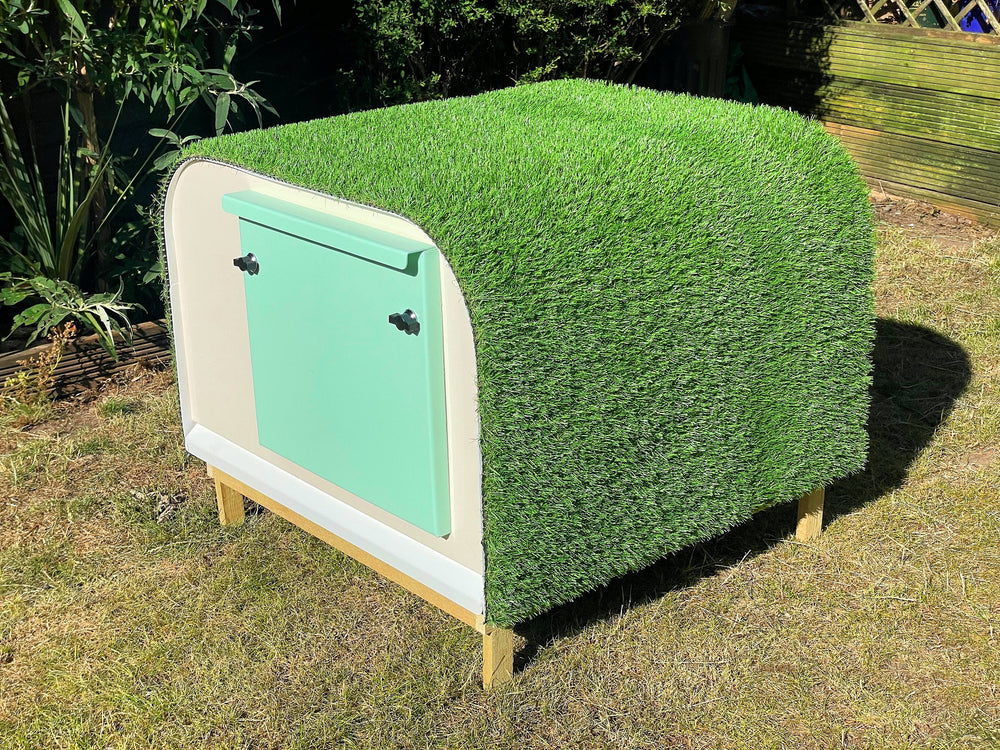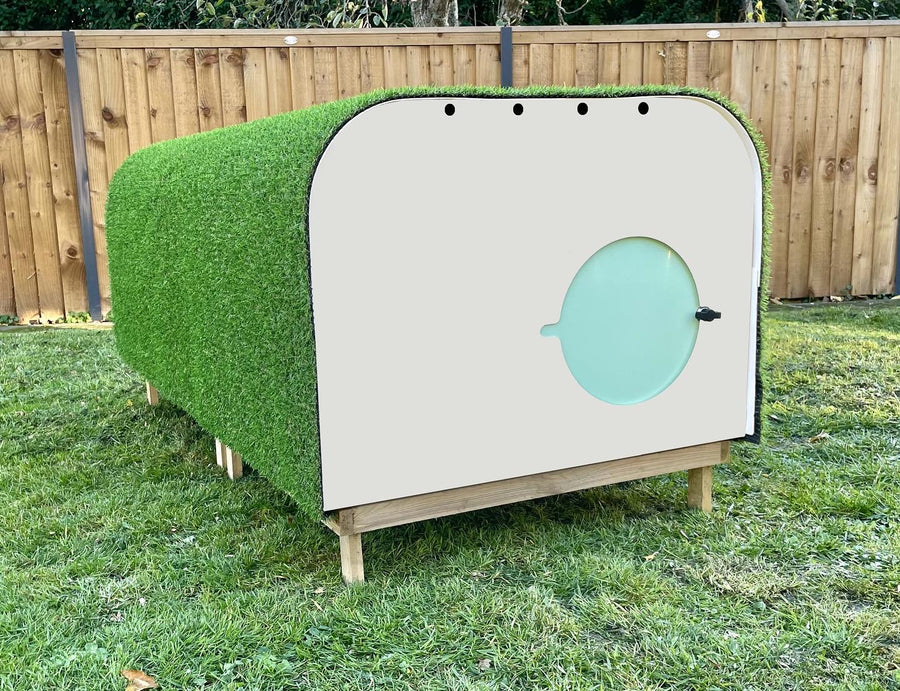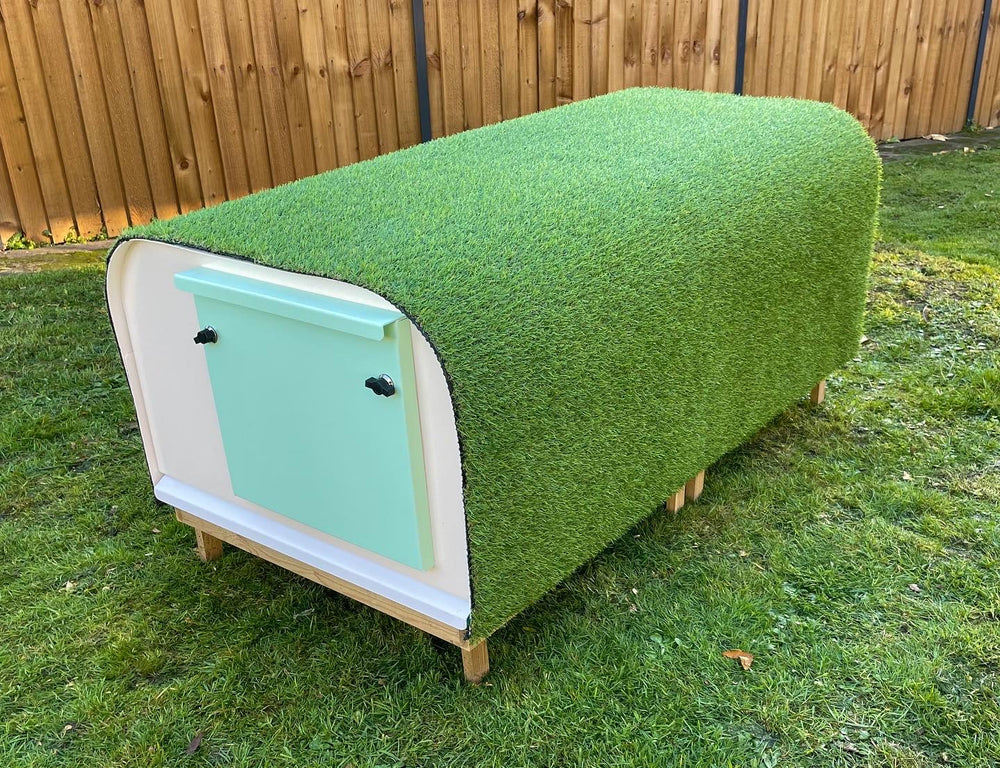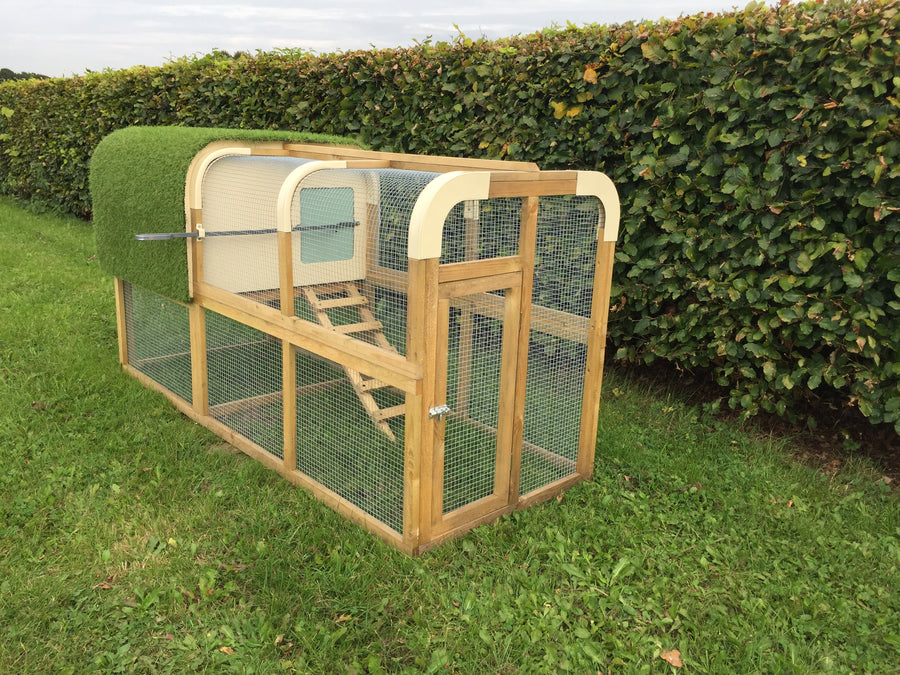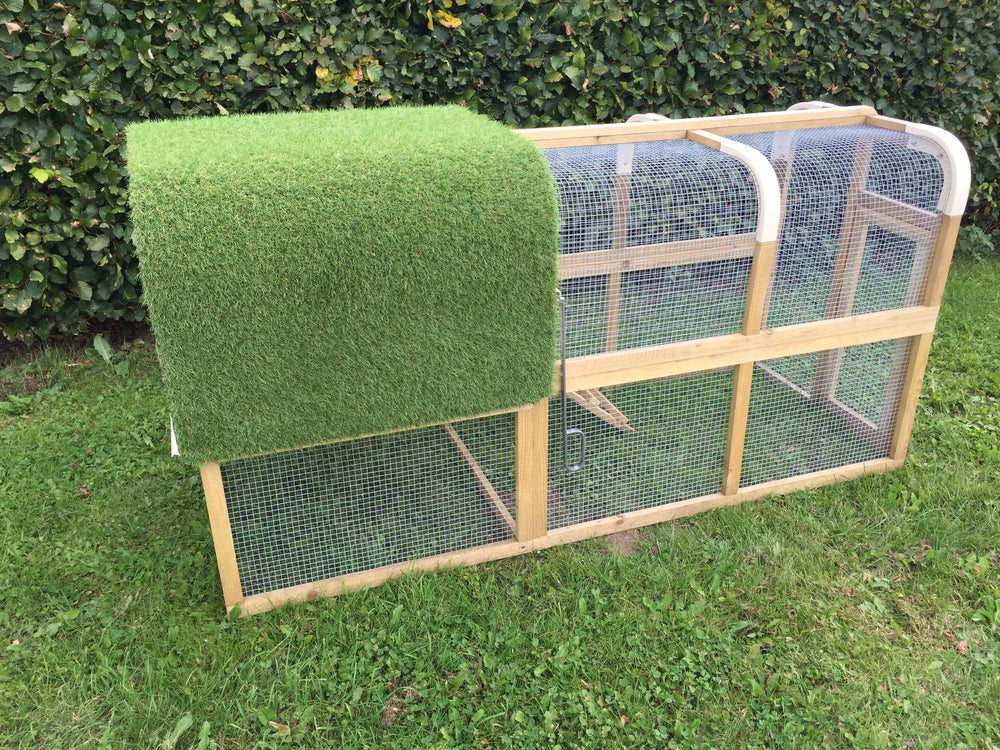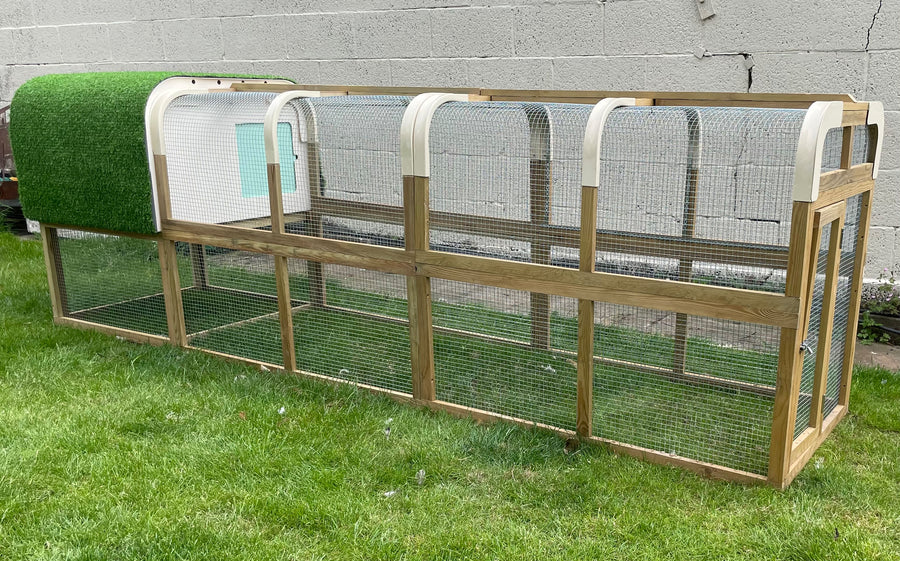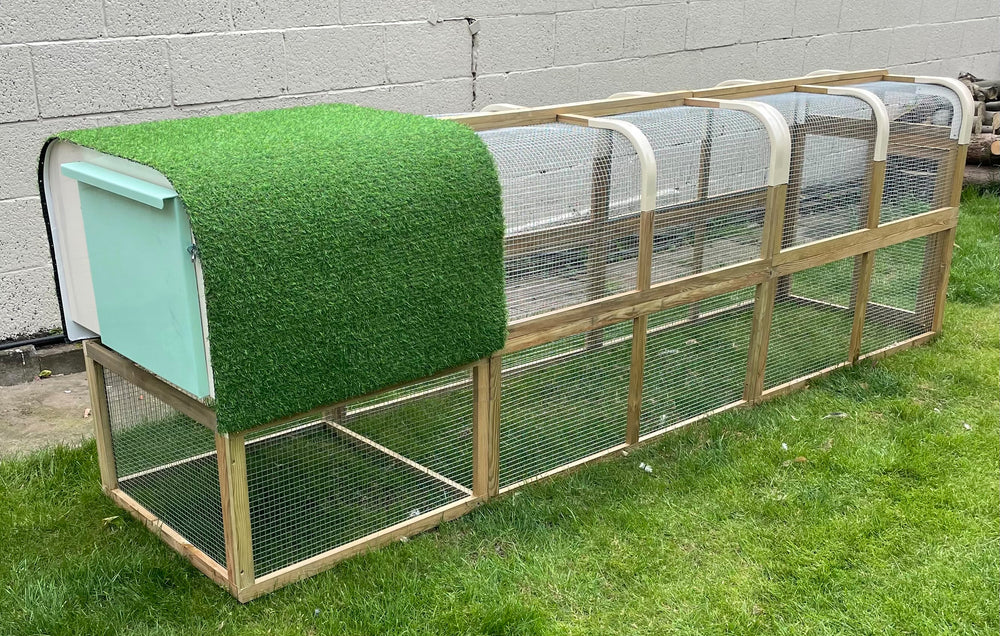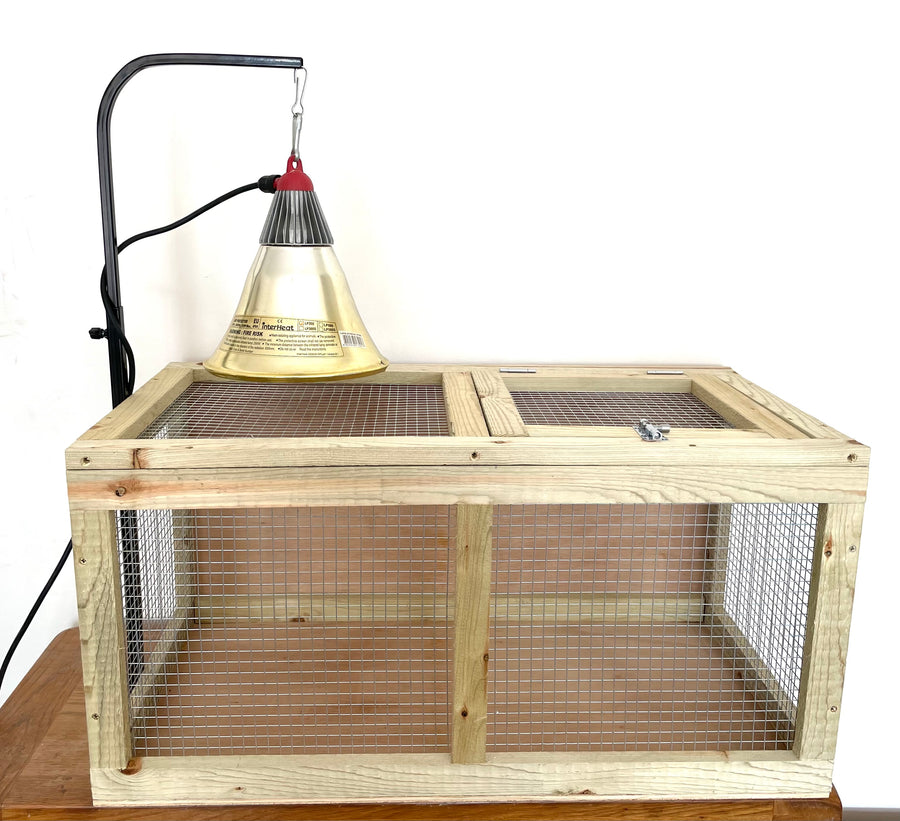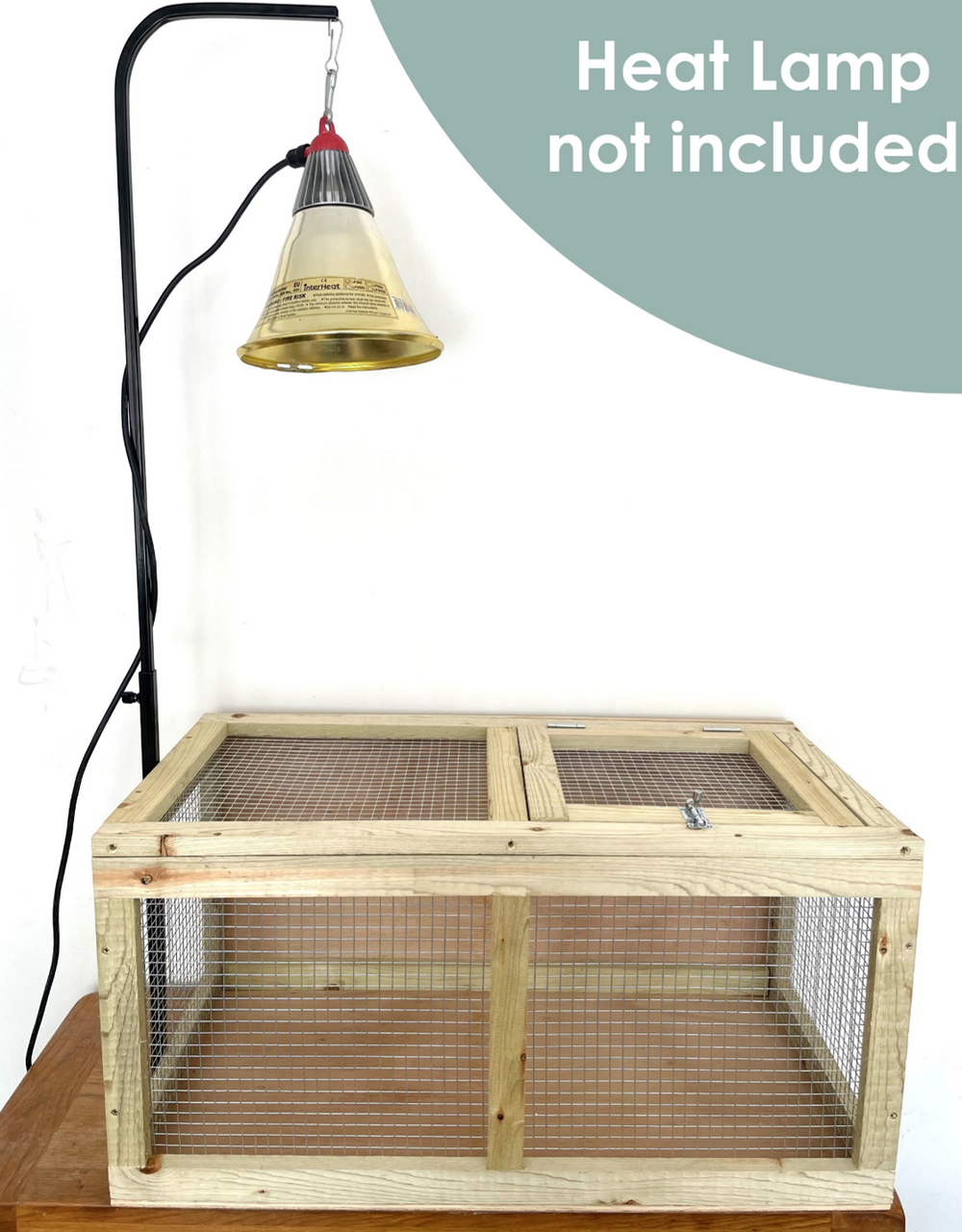A Guide to Duck Coops: What to Look For and the Benefits of a Plastic Coop
Raising ducks can be a rewarding experience, whether you're interested in fresh eggs, pest control, or simply enjoying the company of these charming birds. However, just like chickens, ducks need a safe, comfortable, and well-designed coop to thrive.
Selecting the right coop for your ducks is essential to their health and well-being. In this article, we'll explore the key features to look for in a duck coop, emphasising the advantages of choosing a plastic coop.
Key Features to Look for in a Duck Coop
When selecting a duck coop, there are several factors to consider to ensure it meets the needs of your ducks:
Ample Space
Ducks are generally larger than chickens and require more space to move around. A good rule of thumb is to provide at least 4 to 6 square feet of floor space per duck inside the coop. Ample space helps prevent overcrowding, reduces stress, and allows ducks to express their natural behaviors, such as preening and resting comfortably.
Ventilation
Proper ventilation is crucial in a duck coop to prevent moisture buildup and ensure fresh air circulation. Ducks produce a lot of moisture through their droppings and respiration, so the coop should have well-placed vents or windows that allow air to flow without creating drafts. Good ventilation helps maintain a healthy environment and reduces the risk of respiratory issues.
Easy Access to Water
Ducks need constant access to water, not only for drinking but also for cleaning their bills and eyes. While water containers can be placed outside the coop during the day, it's important to have a designated area inside or near the coop where they can access water at night. This area should be easy to clean and maintain to prevent excessive moisture inside the coop.
Predator Protection
Ducks are vulnerable to predators such as foxes and birds of prey. A well-constructed coop should be secure, with sturdy walls, a strong door, and predator-proof locks. The coop should also be elevated slightly off the ground to prevent burrowing animals from gaining access.
Easy Cleaning and Maintenance
Ducks can be messy, so it's vital to choose a coop that is easy to clean. Look for features like removable flooring, large doors, and simple designs that allow for quick and thorough cleaning. Regular cleaning helps prevent the buildup of bacteria and parasites, keeping your ducks healthy.
The Benefits of a Plastic Duck Coop
While traditional wooden coops have been popular for years, plastic coops are becoming increasingly favoured among duck owners due to their numerous advantages. Here's why a plastic coop might be the best choice for your ducks:
Durability and Weather Resistance
Plastic coops are highly durable and can withstand weather conditions without rotting, warping, or deteriorating. Unlike wood, plastic does not absorb moisture, which is particularly important in a duck coop where wet conditions are expected. This resistance to weathering ensures that the coop remains in good condition for years, even in harsh climates.
Ease of Cleaning
One of the standout benefits of a plastic coop is its ease of cleaning. Plastic surfaces are smooth and non-porous, making it easy to wipe down or hose off dirt, droppings, and moisture. Many plastic coops also feature removable floors or trays that can be quickly taken out for cleaning. This ease of maintenance helps maintain a hygienic environment, reducing the risk of disease and parasites.
Hygiene and Health Benefits
Plastic coops are less likely to harbour bacteria, mites, and other pests that can infest wooden structures. The non-porous nature of plastic means that there are fewer places for pests to hide and breed. This contributes to a healthier living environment for your ducks, reducing the likelihood of health issues related to poor coop hygiene.
Lightweight and Portable
Plastic coops are typically lighter and more portable than wooden ones. This makes it easier to move the coop around your yard or garden, allowing for better pasture rotation and preventing the buildup of waste in one area. The ability to easily relocate the coop also means you can move it to a more sheltered location during extreme weather.
Insulation and Comfort
Many plastic coops are designed with built-in insulation, helping to maintain a stable temperature inside the coop. This is particularly beneficial in extreme weather conditions, as it keeps your ducks warm in the winter and cool in the summer. A well-insulated coop contributes to the overall comfort and well-being of your ducks.
Long-Term Cost Savings
While plastic coops may have a higher upfront cost compared to some wooden coops, they often prove to be more cost-effective in the long run. The durability and low maintenance requirements mean you'll spend less on repairs, replacements, and pest treatments over time. Additionally, the longevity of a plastic coop ensures that your investment will pay off for many years.
Choosing the right duck coop is essential to ensuring the health, safety, and happiness of your ducks. When selecting a coop, prioritise factors like space, ventilation, predator protection, and ease of cleaning. While traditional wooden coops have their place, plastic coops offer significant advantages, including durability, ease of maintenance, and improved hygiene.
A plastic duck coop is a smart investment that provides a comfortable, secure, and easy-to-manage home for your ducks. Whether you're a seasoned duck owner or new to raising waterfowl, a plastic coop can simplify your routine and give you peace of mind, knowing your ducks are well cared for in a clean and durable environment.


